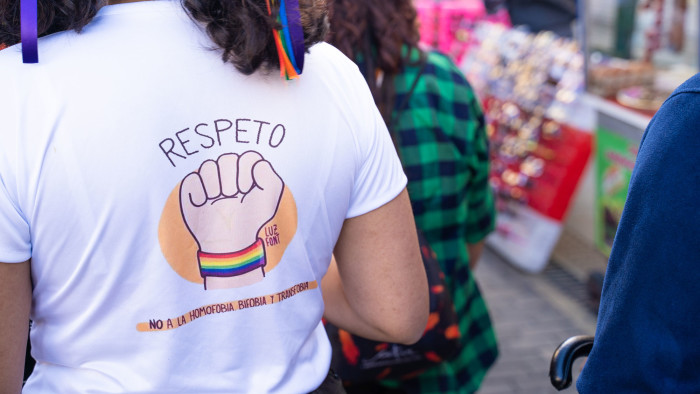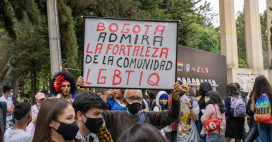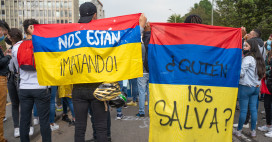
Institutional transphobia did not go away when the gender-based lockdown measure Pico y Genero ended in Bogotá. Police abuse and violence against the trans population is historical, and continued to increase during the quarantine, especially for transgender sex workers.
On the morning of June 20, 2020, trans women from the Santa Fé neighbourhood, a zone of tolerance where sex work is accepted and carried out in Bogotá, experienced another episode of police violence, this time directly threatening their lives. According to the account of the Red Comunitaria Trans, which operates in that area, together with the sex workers in the neighbourhood, at 3:50 am, on 22nd Street with Caracas, the Metropolitan Police approached a group of trans women who were working in the area, insulted them using lewd remarks, and ordered them to leave.
The police beat the women with their batons, hitting them in the legs and buttocks, and ended up shooting some of them, while chasing them with motorcycles and patrols.
One of the bullets (apparently a rubber bullet) used by the police, hit Natalia, a trans sex worker. The colleagues called an ambulance at four in the morning, which did not arrive. “I was working in the corner, getting my money, my food, look at what they did to me,” Natalia denounces in one of the videos recording the case. “It is not fair”.
Another bullet hit Macarena, another trans sex worker who was working in that area at dawn, while exercising her right to work and to be able to support her own livelihood in the midst of the pandemic.
Both women were shot in their buttocks, right where they have implanted silicone, and a key point on the body for the identity construction of a transgender and transsexual woman. In Natalia’s case, she expelled a lot of silicone which can cause severe infection. “If I don’t heal, I can’t live,” she says. The attack, clearly unjustified, could leave very serious and perhaps irreversible health complications for both women.
The Red Comunitaria Trans explained that it is very difficult to report these assaults to the same entity that carries them out. The retaliation for reporting becomes even worse. Usually after reporting, trans women face threats, physical assaults, persecution, and intimidation by police officers. The Red also affirms that the police in the area where the events occurred know the time and the places in the neighbourhood where trans women work. “This makes it possible to build relationships of power and persecution between the agents themselves and the victims.”


